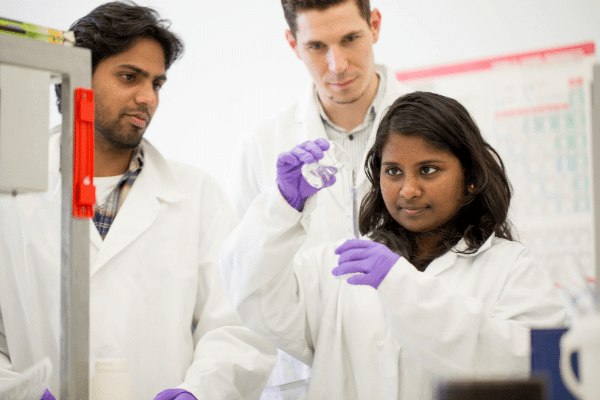In recognition of their ground-breaking work, twelve Australian researchers have been given grants from the Australia-India ‘Unnati’ Research Collaboration Programme.
In its maiden year, the grants focus on four priority areas of mutual importance between Australia and India: food and water security, the future of healthcare, environmental change and energy frontiers, and digital humanities and intelligent futures. Each project addresses critical challenges and seeks to make a lasting impact in its respective domain.
Supported by the Department of Education of the Australian Government and managed by the Australia India Institute, the Unnati Grants fosters research collaborations opportunities between India and Australia.
Unnati being the Hindi word for ‘progress’, the initiative strives to progress or advance the impact and outcomes of research collaborations.
Spanning across nine universities in Australia, the selected researchers this year will receive grants of upto $30,000. They will collaborate with partners from more than 20 higher education institutions, research centres, and industries in India.
The programme attracted over 180 applications via the Australian Researcher Cooperation Hub (ARCH)-India in its initial round of selection reinforcing the potential in research collaboration between the two countries .
Highlighting the impact of Unnati Grants, the CEO of the Australia India Institute Lisa Singh said, “Through collaboration, we can harness the expertise and resources of both nations to achieve greater progress in key areas of priority, leading to lasting social and economic outcomes for Australia, India and the planet.”
Food and water security projects aim to enhance the security of groundwater supplies and improve livelihoods in rural communities in India. This includes investigations of groundwater contamination caused by high levels of fluoride in rural areas of West Bengal, India, as well as examination of climate change and its impacts on individuals’ food and water security.

In the future, healthcare sector collaborations between Australian researchers and Indian scientists will focus on developing new tests specifically designed to measure a compromised gut barrier, educating Indian paediatric intensive care clinicians on clinical trial methodology, and adapting an occupational justice research tool in the Indian context to explore the occupational rights and health needs of women.
On the environmental change and energy frontiers, there will be a heat stress study to tackle and identify energy barriers faced by the people of Perth and Delhi in staying cool. Research will also be conducted on clean energy transition and its potential to improve health and welfare in rural India. Additionally, novel methods using phase change materials to manage battery temperature and prevent fires will be explored.
In the digital humanities sector, projects such as improving women’s safety using digital technologies, mapping, visualising, and interpreting urban historical data in Digital Shillong, and strengthening the Australia-India cybersecurity partnership for digital innovation are areas of prime research.
The researchers selected for this year’s study come from various esteemed institutions. From Australia, representation comes from UNSW, University of Melbourne, ANU, Western Sydney University, University of New England, University of South Australia, and Curtin University.
In addition to the four Indian Institute of Technology (IIT) campuses in Delhi, Bombay, Kharagpur and Chennai, the Indian researchers in the Unnati initiative come from Banaras Hindu University, Sardar Vallabhbhai National Institute of Technology, Rabindra Bharati University, Asian Institute of Gastroenterology, The George Institute for Global Health India, Postgraduate Institute of Medical Education and Research, Indian Institute of Public Health, Good Shepherd Hospital, E-Hands-Energy, Uttaranchal University, Central Jammu University, Adiabatic Technologies Pty Ltd, Manipal Academy of Higher Education, Indian National Trust for Art and Cultural Heritage (Meghalaya Chapter), North-Eastern Hill University, St Anthony’s College Shillong, University of Calcutta, and Mahatma Gandhi University.
Read More: ARCH-India’s Unnati grants set to advance bilateral research collaboration




